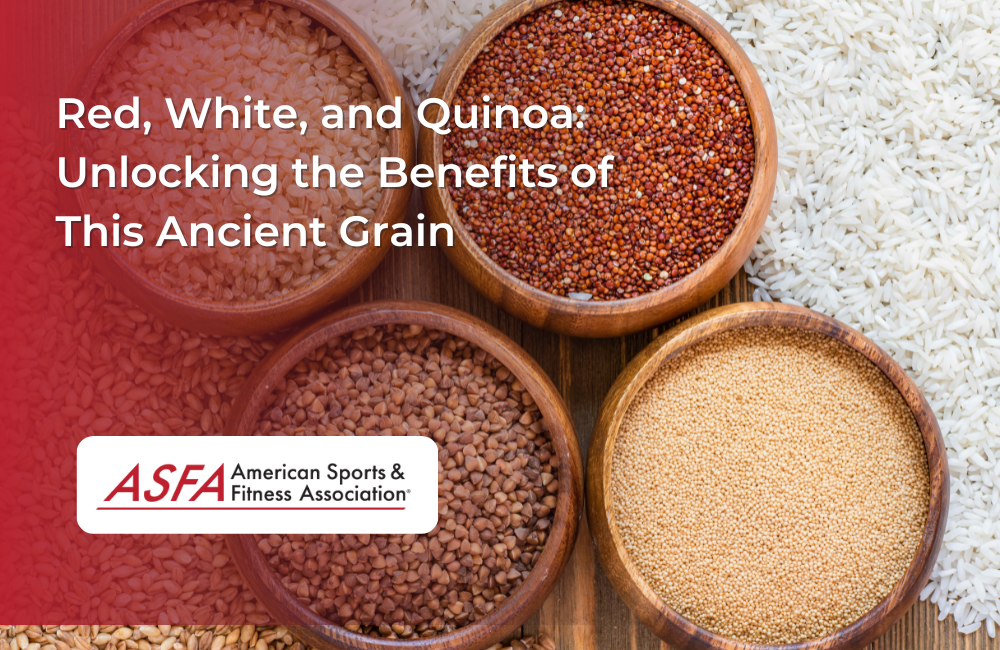Quinoa is a tasty and versatile grain with a bold, nutty taste. This "superfood" is gluten-free and naturally high in protein, making it a nutrient-dense food that can fit into any diet. The quinoa plant also produces a bonus ingredient called saponins. There are several types of saponins that can be extracted from quinoa seeds. These nutrients have been shown to help regulate blood sugar, but more research needs to be done on this topic. Saponins can also be used as an antioxidant skin cleanser or exfoliant because they're so effective at penetrating the skin barrier and boosting cellular health."
Quinoa is a tasty and versatile grain with a bold and nutty taste
Quinoa is a seed that's high in protein, fiber and minerals. It has a bold and nutty taste that makes it perfect for use as an alternative to rice or couscous. Quinoa can be used in soups, salads, casseroles and more!
Quinoa contains all nine essential amino acids making it an excellent source of protein and fiber. It also contains iron and calcium which are two nutrients that we often don't get enough of as adults (especially women). The saponins produced by quinoa plants have been shown to have medicinal properties when isolated from other parts of the grain
This "superfood" is gluten-free and naturally high in protein
Quinoa (pronounced keen-wah) is a seed that's naturally high in protein and fiber. It can be used in place of other grains, including rice or couscous, and has a mild flavor that works well with many dishes. Quinoa is gluten-free, making it an excellent choice for people with celiac disease or other food allergies who need to avoid wheat products. Quinoa seeds are easy to cook at home--just follow these simple steps:
- Rinse the quinoa thoroughly before cooking it; this helps remove any bitter coating on the outside of each seed so they taste better when cooked
- Use one part quinoa seeds and two parts liquid (water or broth); bring everything up to a boil over medium heat before reducing heat slightly until all liquid has been absorbed into your mixture, about 15 minutes
The quinoa plant also produces a bonus ingredient called saponins
Saponins are a type of natural soap that's extracted from the seeds of the quinoa plant. They're used to make shampoo and cleaning products, but they also have some health benefits. Quinoa is one of the only plants in nature that contains saponins, so if you want to get some in your body--and there's reason to think it might help with weight loss--you need to eat some quinoa first.
Saponins have been shown to lower cholesterol levels and reduce blood pressure, making them good for people who have high blood pressure or diabetes. It may also help prevent cancer by triggering apoptosis (cell death) in cancer cells without harming healthy ones nearby; however, this claim hasn't been proven yet so don't take any supplements containing saponins before talking with your doctor first!
There are several types of saponins that can be extracted from quinoa seeds
Saponins are a type of natural chemical compound found in many plants. Quinoa is one of the few foods that contain saponins, which have been shown to have a variety of health benefits. Saponins are good for your immune system, can help regulate blood sugar levels, and also act as antioxidants, meaning they may help prevent cell damage caused by free radicals (unstable molecules). While more research is needed on this topic, quinoa is a gluten-free grain that contains saponins, making it an appealing addition to most diets.
These nutrients have been shown to help regulate blood sugar
Saponins are a type of phytochemical that can be found in quinoa. These compounds have been shown to help regulate blood sugar, cholesterol, and other markers for heart disease risk.
The current body of evidence is limited but promising: several studies have linked saponin intake with reduced levels of LDL cholesterol (the "bad" kind) and triglycerides in the bloodstream. In addition, saponins may lower blood pressure by reducing angiotensin II production--a hormone that causes constriction of blood vessels throughout your body
Saponins can also be used as an antioxidant skin
Saponins are a type of chemical found in quinoa seeds, which can be used as an antioxidant skin cleanser or exfoliant because they're so effective at penetrating the skin barrier and boosting cellular health. Saponins have been shown to help remove dirt, oil, and other impurities from pores, while also moisturizing dry areas like elbows or knees.
Saponins are also used in cosmetics as an anti-aging product; they fight wrinkles by helping tighten up loose skin around the eyes (which reduces puffiness), lips, and necklines.
Quinoa's nutrient content makes it an appealing addition to most diets
Quinoa is a good source of protein, fiber, iron, and magnesium. It also contains high levels of phosphorus, manganese, and riboflavin (vitamin B6).
- Protein: Quinoa contains all nine essential amino acids that your body needs to build muscle tissue or make hormones. A 1/2 cup serving provides about 3g of protein--more than any other grain!
- Fiber: The fiber content in quinoa makes it a great choice for those looking to boost their digestive health by preventing constipation while improving regularity. In addition, this particular type of carbohydrate can help lower blood sugar levels after eating meals with high glycemic index values (GI).
Conclusion
Quinoa is a versatile grain that can be used in a variety of recipes. It's an excellent source of protein, fiber, and other nutrients that can help support your overall health and wellness. The quinoa plant also produces a bonus ingredient called saponins, which have been shown to have antioxidant properties when applied topically on the skin.




